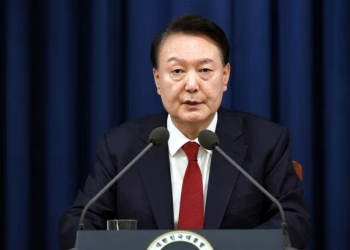The vetting of President William Ruto’s Cabinet nominees by the National Assembly Committee on Appointments has prompted a significant discussion in Parliament regarding the media’s focus on the nominees’ wealth.
The debate centered around the transparency of wealth declarations and their impact on public perception. Notably, media reports highlighted that Interior CS nominee Kithure Kindiki’s net worth grew from Sh544 million to Sh694 million between October 2022 and August 2024, an increase of Sh150 million. Similarly, Defence CS nominee Soipan Tuya reported her net worth rising from Sh156 million to Sh243 million over the same period. Lands Cabinet Secretary nominee Alice Wahome also disclosed a substantial increase, with her net worth now at Sh327.65 million, up from Sh218.4 million in 2022.
Speaker Moses Wetangula and members of the committee expressed concern that the media’s emphasis on the nominees’ wealth overshadowed their qualifications and suitability for public office. Wetangula noted, “We asked numerous incisive questions about the nominees’ capabilities, yet the media focused primarily on their net worth.”
He urged the media to offer balanced reporting, stressing that the committee’s role was to evaluate the nominees’ suitability rather than their financial status. MP Kimani Ichung’wa acknowledged the media’s right to report on wealth declarations but suggested that some MPs might possess greater wealth than the nominees, humorously citing Junet Mohamed as an example. This remark led to light-hearted exchanges in the assembly.
Ichung’wa emphasized that wealth should not be viewed negatively, highlighting the importance of transparency in maintaining public trust. He noted that Cabinet Secretaries, like Members of Parliament, can utilize mortgage facilities to purchase property, with Tuya’s long tenure in Parliament justifying her financial status.
Speaker Wetangula clarified that wealth declarations are typically reviewed towards the end of the vetting process and that nominees had provided detailed explanations. For instance, Tuya attributed her wealth growth to the appreciation of her assets, including property.
Gladys Boss added that wealth declarations are intended to ensure transparency and accountability, not to disqualify candidates. She explained that the Ethics and Anti-Corruption Commission (EACC) holds these declarations, accessible only through a court order if necessary.
Junet Mohamed reinforced that wealth should not be stigmatized, noting that the real concern is how wealth is accumulated, particularly if it increases rapidly. He drew comparisons between long-term and short-term wealth accumulation to illustrate public concerns.
The discussion also highlighted the media’s role in shaping public perception. MP Robert Mbui recalled similar media focus on wealth during past vetting processes, suggesting that stories about financial status might attract more attention due to public interest.
The vetting process has underscored the complex interplay between transparency, public perception, and media responsibility.















